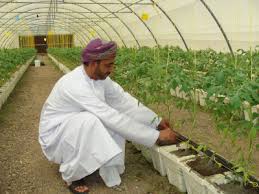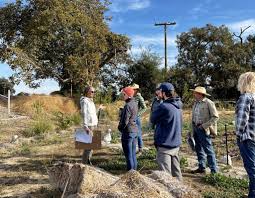Many people and organizations today have a new or renewed interest in project management, particularly in the agricultural sector. Until the 1980s, project management primarily focused on providing schedule and resource data to top management in industries such as the military, computer, and construction.
Today’s project management involves much more, with people in every industry and every country managing projects, including those in agriculture. New technologies have become a significant factor in many businesses.
Computer hardware, software, networks, and the use of interdisciplinary and global work teams have radically changed the work environment, including agricultural operations.
Project management in the modern sense began in the early 1950s, although it has its roots further back in the latter years of the 19th century. The driver for project management was businesses realizing the benefits of organizing work around projects and the critical need to communicate and coordinate work across departments and professions, especially in agriculture.
Read Also: How to Identify and Treat Diseases on your Fish Farm
Agricultural General Management

General management in agriculture involves being responsible, on a day-to-day basis, for the direction of a business or part of a business against the backdrop of an increasingly global marketplace.
It’s varied, hands-on, and challenging, with responsibility not only for the output of a team of staff but also to more senior managers for achieving project-based work and management targets. Consequently, roles are invariably very busy but also stimulating and rewarding.
Management activities in agriculture typically include:
i. Defining objectives, allocating resources, and monitoring progress against targets.
ii. Planning and implementing projects, delegating work appropriately, and taking responsibility for the outcome.
iii. Recruiting, supervising, motivating, and developing staff to ensure effective team working.
iv. Communicating effectively with colleagues, customers, and suppliers.
v. Controlling finances and managing budgets.
vi. Problem-solving, dealing with complaints, and managing change during the introduction of new work systems.
Project Management vs. General Management in Agriculture

The question may arise as to the need to look at agricultural project management as a separate field of study. The reason is simple and obvious. Projects identified in agriculture are entrusted to a team of personnel, and they are expected to see to it that the project is completed within the time frame, utilizing the allotted resources.
Thus, the project personnel are assigned the responsibility of completing the agricultural project within the limits of time and resource constraints, and they are given the required authority to carry out their functions.
The reason for forming an agricultural project team is to assign authority and fix responsibility for achievements on a small group of personnel (project team members), where the jobs to be performed by them in completing the agricultural project activities do not clearly fall within the definition of routine organizational work.
The major difference between a general manager and a project manager in agriculture is that a general manager manages mostly routine organizational activities, while a project manager handles non-routine activities. A general manager deals with ‘non-project’ agricultural activities.
A general manager may come across non-routine activities only very rarely. Hence, a general manager can manage by exception. Almost every routine agricultural activity is handled by subordinates, as there are well-laid-out, clearly defined courses of action to be performed in handling routine activities. The general manager has to tackle non-routine agricultural activities only when they arise.
While a general agricultural manager comes across exceptional non-routine activities rarely, every activity that an agricultural project manager handles is an exception. Therefore, an agricultural project manager needs to be highly flexible and adaptable.
Program and Project Portfolio Management in Agriculture
About one-quarter of the world’s gross domestic product is spent on projects, including those in agriculture. Projects make up a significant portion of work in most agricultural organizations or enterprises, and successfully managing these projects is crucial to enterprise success. Two important concepts that help agricultural projects meet enterprise goals are the use of programs and project portfolio management.
Read Also: 8 Uses of Fish and Fish Products
Agricultural Programs

A program is defined as “a group of related projects managed in a coordinated way to obtain benefits and control not available from managing them individually.” As can be imagined, it is often more economical to group agricultural projects together to help streamline management, staffing, purchasing, and other work.
The following are examples of agricultural programs:
i. A construction firm has programs for building single-family homes, apartment buildings, and office buildings. Each home, apartment building, and office building is a separate project for a specific sponsor, but each type of building is part of a program. Similarly, agricultural firms may have multiple crop or livestock projects grouped under one agricultural program.
ii. A clothing firm has a program to analyze customer-buying patterns. Projects under this program might include surveys, focus groups, and the development of information systems. Similarly, an agricultural firm may have programs to analyze soil health, crop yields, or climate impact.
A program manager in agriculture provides leadership and direction for the project managers heading the agricultural projects within the program. Program managers also coordinate the efforts of project teams, functional groups, suppliers, and operations staff supporting the agricultural projects to ensure that project products and processes are implemented to maximize benefits.
Program managers are responsible for more than just delivering project results; they are also change agents responsible for the success of products and processes produced by those agricultural projects.
Program managers often hold review meetings with all their project managers to share important information and coordinate critical aspects of each agricultural project. Many program managers have worked as project managers earlier in their careers, and they enjoy sharing their wisdom and expertise with their project managers.
Effective agricultural program managers recognize that managing a program is much more complex than managing a single project. They understand that technical and project management skills are not enough. In addition to skills required for project managers, program managers must also possess strong business knowledge, leadership capability, and communication skills.
Do you have any questions, suggestions, or contributions? If so, please feel free to use the comment box below to share your thoughts. We also encourage you to kindly share this information with others who might benefit from it. Since we can’t reach everyone at once, we truly appreciate your help in spreading the word. Thank you so much for your support and for sharing!
Read Also: How long does it take tilapia fish to grow?
Frequently Asked Questions
We will update this section soon.

